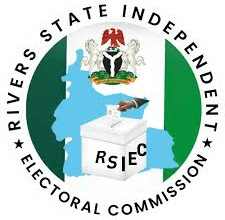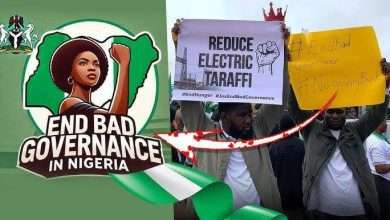
When the history of godfatherism in Nigerian politics will be written, Mr. Ahmed Bola Tinubu may not take the first position. But he would certainly receive prominent mention in somewhat incommodious manner for elevating that aberrant political behaviour to a dark art form. His is consistent with that Nigerian way of doing things in reverse that ultimately puts the country in backward gear rather than accelerating it like others with far less resources.
Tinubu arrived the political scene from his private sector practice quite like a gentleman with all the good intentions and pursued a pro-democracy agenda that his distractors at the time even admired. He emerged a senator after the famous 1993 elections, adjudged the freest and fairest and which produced Chief MKO Abiola whose mandate the military would infamously scuttle. With an aborted Third Republic put paid to, Tinubu and his ilk in the pro-democracy National Coalition for Democracy (NADECO) took to the highway of resistance and immediately put the military in the back foot.
He and others would later flee the country for political exile abroad where they fought the military to a standstill. And so from 1993 to 1997 through the dictatorships of Generals Ibrahim Babangida and Sani Abacha, Tinubu and his co-travellers in the highway of democracy fought for the return to civilian rule. It was a fight that cost lives and much more. Those who survived like Tinubu emerged heroes of the democratic dispensation that came into being in 1999 when the military pulled out of governance but left their illegitimate imprint in the form of a skewed constitution that continues to haunt the soul of Nigeria’s democracy in its unbroken 20 years of existence.
Tinubu did not only survive the onslaught of the military rampage that went after pro-democracy activists and campaigners, he also emerged one of its huge beneficiaries when he became governor of Lagos State in 1999. He would then bring his private sector practice into governance and lay what many consider the blueprint for his successors for a modern Lagos that was poised for its race from a mega to a smart city. He fought many political battles before emerging governor, including the stiff opposition he shrugged off from Mr. Funso Williams, who would later die in questionable circumstances in the race to the governorship seat in Alausa. Eventually, Mr. Tinubu triumphed.
In his eight years as helmsman in Lagos, he set about building the ‘City of Aquatic Splendour’ in his own image that would later loom so large it is difficult to distinguish between him and his creation as the two melded into one like Siamese twin. But he got distractions from Abuja where he was in political opposition, first in Action for Democracy (AD) and then Alliance Congress of Nigeria (ACN). President Olusegun Obasanjo would heckle him with federal might with him returning fire as well. But armed with the state he had remade in his own image, he remained resilient and weathered Obasanjo’s hard tackles.
While in opposition he shouted his voice hoarse over restructuring and fiscal federalism, terms he propounded to deafening loudness. But Obasanjo, believed to be a hireling of the northern oligarchic establishment, would not give heed to such major reshaping of Nigeria’s critical foundation for equitable distribution of power and resources. Tinubu, James Ibori of Delta and Diprieye Alameyesiegha of Bayelsa States were the arrowheads of restructuring and fiscal federalism, who believed that those two policies were bequeathed Nigeria by the British. They are essential counterfoils to the unitary government that the military had imposed on the country in their haste to remake Nigeria in the image of an empire for the northern oligarchy, who have their eyes trained greedily on the oil wealth in the Niger Delta as Nigeria’s economic mainstay.
And so after eight years and having laid a foundation for Lagos, Tinubu left, with one of his feet still planted solidly in Alausa and the other in Bourdillon Street, Ikoyi. In fact, some wags claim he has actually relocated Government House from Alausa to Bourdillon where he is lion watching over the cubs he installs in Alausa. That, indeed, he merely configured the power structure in Lagos in such a manner that no one comes into office without him saying so. Some critics even allege that he openly rigged the governorship selection process such that all its operational tools are consolidated in his hands. Thus he began another job as a human resource scout who conscripts into office anyone he deems pliable to his political wiles, and now sits as chairman of what would be termed in some quarters as Lagos Plc.
What is more, his affable ways and how he dispenses his political graces endear him to a vast majority of the people who he presides over. After leaving office, Tinubu recruited his chief of staff, Mr. Raji Fashola, to succeed him. As governor, Fashola walked a political minefield, and nearly blew himself to pieces in his godfather’s mines, especially when he attempted to assert his independence and be his own man. Tinubu came down hard on him and almost withdrew his second term ticket but for the timely intervention of stakeholders; not even Fashola’s purported sterling performance that would make him a poster boy for the Buhari Administration would be of interest to Tinubu. Fashola managed to survive Tinubu’s scare and served out his second term. Fashola’s attempt to act godfather and plant his own preferred aspirant as governor was thwarted by the super godfather.
But if Fashola was lucky, his successor Governor Akinwunmi Ambode was not. Apparently smarting from Fashola getting away with whatever breach of contract there was between them, Tinubu became wiser. Also, it seemed Ambode showed his hand too early in his quest for political liberation from the Lion’s den. Tinubu promptly wielded the big stick and whacked Ambode on the head from behind. From the Ambode example, there is a caveat in place, according to insiders, that no governor in Lagos would be allowed to enjoy a second term in office henceforth as a way of keeping his governorship minions so selected on a short leash.
But what exactly is at the root of this mindless power play as godfather in politics or indeed any godfather? Why should one man continue to play ‘God’ in the politics of a state? Why is it so important to continue to hold onto the levers of power over 12 years after occupying the same position? Is it for the greater good of the people or just personal self-aggrandisement? And why should only one man know what is good for some 20 million people? And why is it so easy for such huge number of people to continue to defer to one man’s dictates in the political decision of their lives? Why do the people fall under the spell of one man for so long? And at what point did Tinubu’s pre-pro-democracy disposition morph into the totalitarian instinct of a godfather?
These are uncomfortable posers that Lagosians must begin to ask themselves. Will a time come when the people will overthrow the political yolk of one man like it happened in Kwara State through otooge?
Like the ultimate power monger and having consolidated his hold on Lagos’ politics, Tinubu began to make political investments farther afield. From the Lagos starting point, he extended into the Southwest (Yoruba) states of Oyo Osun, Ogun, Ondo and Ekiti States. He almost succeeded in Kogi State but couldn’t make inroad in Kwara State where Bukola Saraki had reigned until recently. But midstream into his political expansionism, Tinubu began to have problems with some of his minions in the outer provinces of his political empire. Senators Abiola Ajimobi and Ibikunle Amosun began to sing different tunes and soon danced away from Tinubu’s grasp having outgrown their tutelage; they, too, began to covet Tinubu in his power game. The duo’s attempts to play Tinubu in the last election backfired. While Amosun managed to salvage his senatorial quest, Ajimobi lost out on two fronts – failed to go to senate and failed to install his preferred governorship candidate in Oyo State.
In any case, out of Tinubu’s political empire has emerged a vast ‘under the table’ business empire to compliment the latter and from where he dispenses favours to his minions. Allegedly from Alpha Beta that is a Lagos cash cow to other multiple businesses, Tinubu bestrides the Lagos political firmament like a Colossus and his grip on the state is final. Ironically, from the sage Obafemi Awolowo to MKO Abiola, there are histories and records of vast industrial complexes and recognizable businesses they initiated and built that define their legacies. But Tinubu, it appears, trades only in politics and converts the rents that accrue from it for installing his minions across spaces.
Having conquered at the regional level, he felt it was time to extend his tentacles to the national stage. The opportunity came in 2015, when after assembling disparate political players from across the country, including aggrieved members from the ruling Peoples Democratic Party (PDP), Tinubu spearheaded the emergence of the serial contender Mr. Muhamadu Buhari president. And he has just enabled him (President Buhari) secure a second term.
After a most successful regional campaign, Tinubu is dreaming
source: Huhuonline






